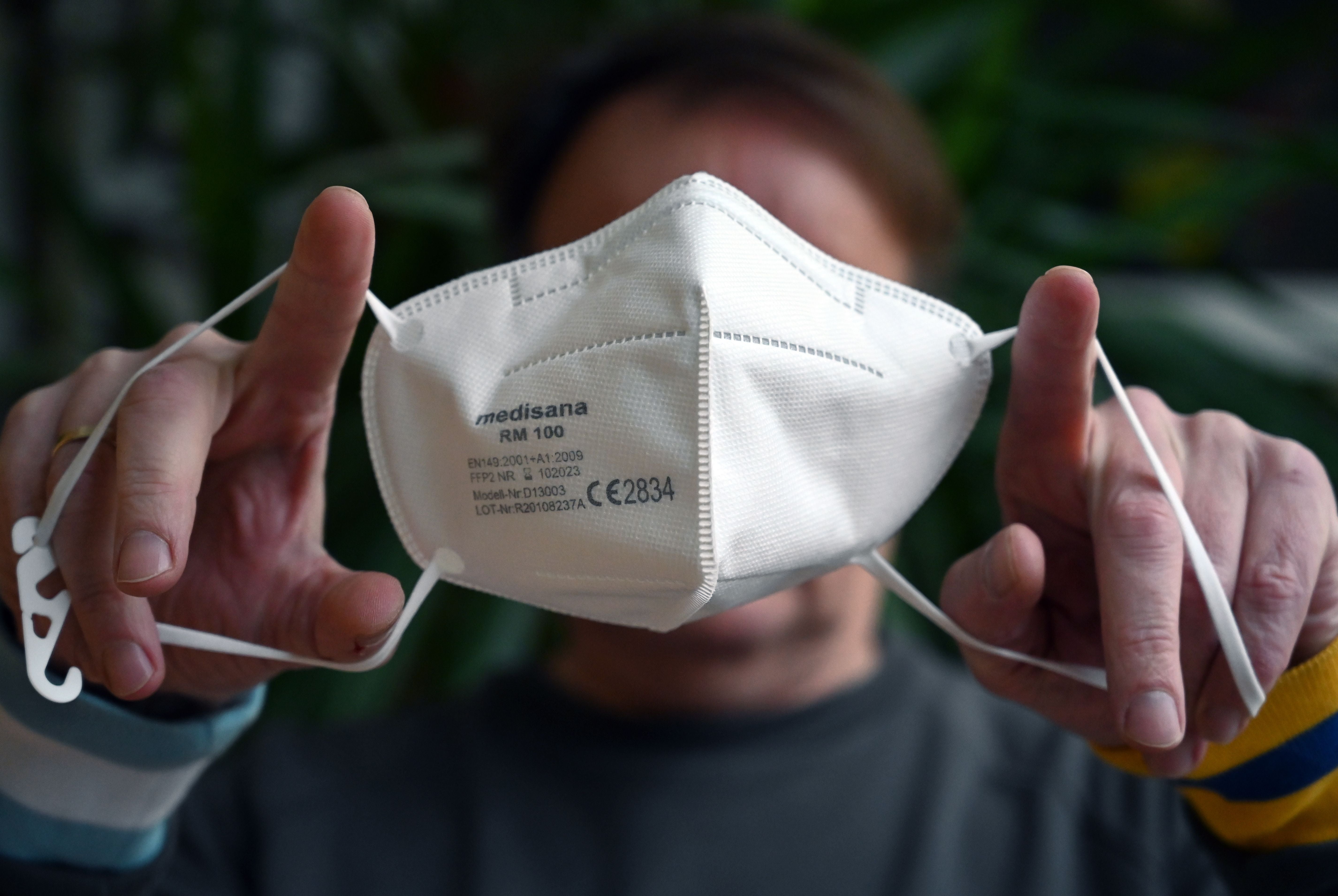A mask should not replace social distancing, new study suggests
Research was carried out with data from more than 300,000 participants across US

A new modelling study carried out by researchers in the US has found that although mask-wearing helps to reduce transmission of Covid-19, it should not be used as a substitute for social distancing.
In the research, published in the journal Lancet Digital Health, scientists discovered that a rise of 10 per cent in self-reported mask wearing was associated with a three-fold increase in the chances of keeping the R number below one.
Researchers have stressed, however, that their findings only showed a link between mask-wearing and the slowing of virus transmission rates, rather than proving direct cause and effect.
The R number is the number of people that one infected person will, on average, go on to infect. When R is above one it means that the number of infections is increasing.
Currently the UK R number is between 1.2 and 1.3, with an average of between 1.3 and 1.5 in the southwest and northwest of England, and down to between 0.9 and 1.2 in London.
The scientists involved in the study found communities in the US with the highest probability of controlling transmission exhibited behaviours such as mask-wearing, coupled with social distancing.
Ben Rader of Boston University, a co-author, said: "An important finding of this research is that mask wearing is not a replacement for physical distancing."
The research was carried out through an online survey which gathered data from more than 300,000 participants in all 50 US states and the District of Columbia. This took place between 3 June and 27 July 2020.
The study’s authors said: “Respondents were not provided with incentives to complete the questionnaire and approximately 11 per cent of those presented with the survey chose to participate.”
Participants were asked questions which included how likely they would be to wear a mask while grocery shopping (84.6 per cent) and while visiting with family or friends in their homes (40.2 per cent).
Anonymised data from Google users who had opted to share their location history on mobile devices was also used, alongside information from other Covid-tracking studies.
Whether or not those who wear masks are also more likely to wash their hands, or partake in other infection reducing behaviours, was not addressed.
Dr Christina M Astley, study co-author and a clinician and epidemiologist with Boston Children's Hospital and Harvard Medical School, said: "Our findings suggest widespread use of face masks may help to control Sars-Cov-2 transmission.”
She added: "This research provides additional evidence that those interventions should include wearing face masks to protect ourselves and as well as physical distancing."
Currently, guidelines from the World Health Organisation (WHO) advise that masks should be worn “as part of a comprehensive package of prevention and control measures to limit the spread of SARS-CoV-2, the virus that causes Covid-19.”
The WHO adds: “A mask alone, even when it is used correctly, is insufficient to provide adequate protection or source control.”
Guidance also suggests masks should be used in conjunction with other preventative measures such as social distancing, hand washing, increased ventilation and people avoiding touching their faces and mouths.
Join our commenting forum
Join thought-provoking conversations, follow other Independent readers and see their replies
Comments


Bookmark popover
Removed from bookmarks